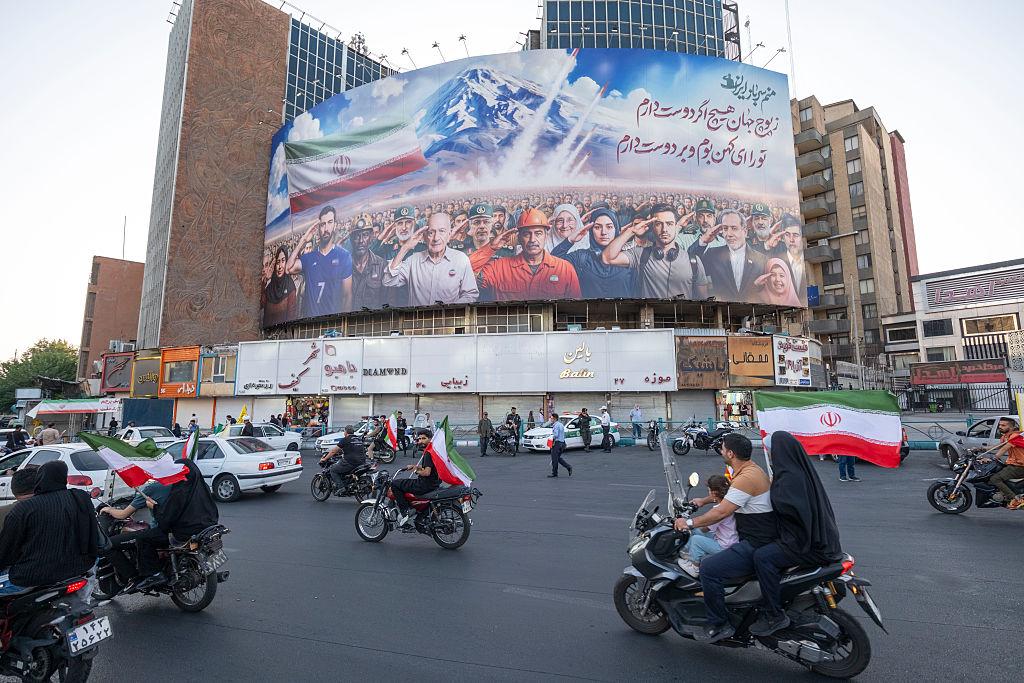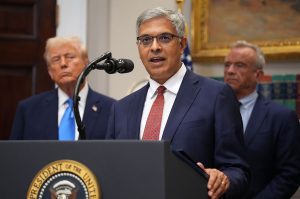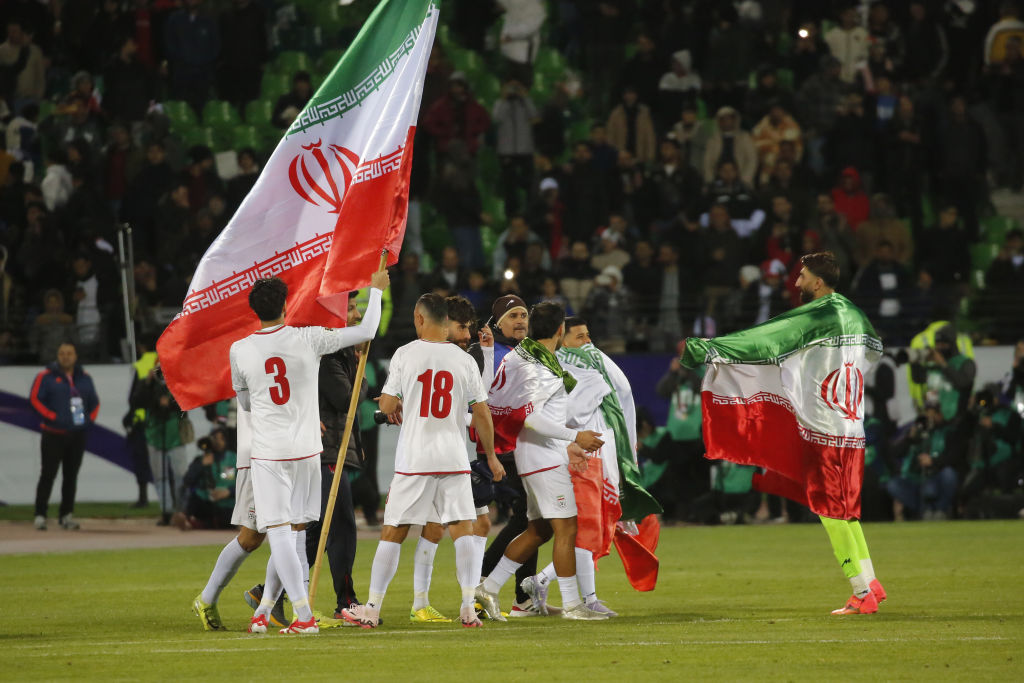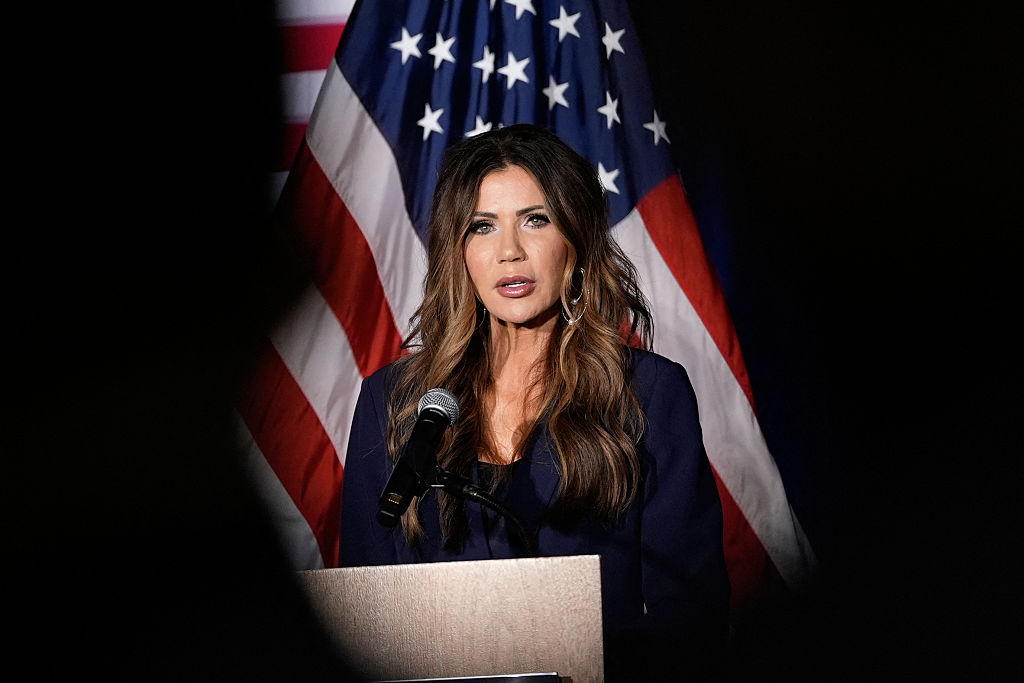The fact is, no one knows where this war ends. Overnight, the United States entered the conflict, bombing a series of targets across Iran. What happens next is difficult to predict. All we can really say for certain about this situation is where it began. And that was on February 1, 1979, when Ayatollah Khomeini returned to Iran – by courtesy of Air France – from Neauphle-le-Château, where he had been resident since his expulsion from Najaf in Iraq a few months earlier.
Left alone, it is almost certain that Iran would seek to reconstruct its nuclear program
Khomeini had inveighed against Israel and Zionism (not always distinguishing either from Jews in general) for decades. Once he seized power in Iran, he made it a defining characteristic of what became the Islamic Republic to call for the destruction of both. As one distinguished commentator on Iran has said, the three pillars of the state he created have been “Death to America,” “Death to Israel” and the Hijab. The hijab may be slipping. America is far away. But Israel is always there.
For four decades, this was the guiding principle of Iran’s foreign policy. To establish Iran as the true protector of the oppressed of the earth – the mustaza’fin – and therefore to assume its proper role as the guardian not just of true Islam but of all peoples who want to see an end to imperialism and western hegemony, Israel must be destroyed. Khomeini used to proclaim it. His successor, Ayatollah Khamenei, has done so with monotonous regularity, followed by his senior military and security commanders (and lots of useful idiots in the West). And that is why Iran has devoted so much effort to building up an array of helpers, partners, allies and proxies who share the same aim. The IRGC, Hezbollah, the Houthis, the Iraqi Shia militias aligned with Iran – with monotonous regularity, they all repeat the same phrase: Marg bar Isra’il in Persian and Mawt li-Isra’il in Arabic.
Some people think this is all for show. They say the real purpose of Iranian policy – the construction of a network of aggressive, corrupt and bellicose partners throughout the region and ultimately the nuclear program with all its studied ambiguities but clear intent – is regime survival. But regime survival, as Khomeini construed it and Khamenei developed it, is predicated on positioning Iran as anti-Zionist. If they had really wished to guarantee its survival, they would have devoted much more effort to building a proper national economy, rather than the gangsterism we see. Iran is weak because it is corrupt. It is corrupt because it is revolutionary. It is revolutionary because it is Islamist. And to be Islamist is to hate Israel.
So this conflict has been coming for years, as papers I wrote for Policy Exchange predicted. I’ve seen people I normally respect – and rather more I don’t – say it was unprovoked. Have they been paying attention? The Hamas attacks of October 7, 2023, followed by those of Hezbollah and the Houthis and indeed Iran’s two waves of missile launches in 2024 were simply the culmination of an often covert and sometimes semi-deniable decades-long war being waged between the two sides. You can argue about causality and sequencing. But it is obtuse to imagine that contemporary conflicts follow a pattern of formal declaration, mobilization, execution and settlement. This is not 1756, the beginning of the Seven Years’ War. The condition of modern geopolitics is not some Platonic idea of international law but conflict in the interests of power pursued in different spaces and dimensions, overt, covert, grey, cyber, intelligence, informational, political, economic and so forth – and not always simply between states.
It happens that Israel is very good at all these things. Iran is quite good at some of them. But it is no match – it turns out – for its opponent. I myself overestimated Iran’s ability, with its proxies and partners, both to deter Israel and to inflict serious damage in return. That was partly because Israel – particularly in its covert operations but also in its ability to execute complex battle plans – has not simply learnt the lessons of the last two decades much better than I thought but also (and unusually for Israel) kept quiet about it. Its ability to deliver spectacular intelligence – and special-forces-led operational success in particular – is an object lesson to countries like Britain, which has seemed more inclined in recent years to run down its core hard power assets in favor of a flabby welfare state which makes politicians feel good but does nothing for the nation’s security.
Iran may still prove to have some cards to play. Its stocks of missiles and launchers have clearly been heavily degraded. It has no land forces it can realistically deploy. Israeli intelligence has thoroughly penetrated the Iranian state and its allies. And Hezbollah and Hamas have taken such a beating they no longer count. The Houthis are just a nuisance. But Tehran still has ballistic and cruise missiles which can do serious damage in a country as small and tightly packed as Israel. If Palestinians or Israeli Arabs also suffer, well that’s just too bad. It can also seek to attack shipping in the Gulf or even try to close the Straits of Hormuz. It tried this in the 1980s, of course, and failed. But in those days we and our NATO allies had proper navies – in particular minesweepers – which quickly resolved the issue. I doubt that the Straits could be closed fully or for long even now. But insurance rates would rise sharply. And so would oil prices. Iran could also attack US bases in the Gulf – al-Udeid Air Base for example or the Fifth Fleet in Bahrain – or the residual US presence in Iraq and Syria. It could sponsor terror attacks on Israeli or US targets more widely. It could even seek to attack energy installations in Saudi Arabia or the UAE, as it did in 2019: that is what the Arab Gulf states – which have economic development not millenarian fantasies on their minds – really fear.
So how does this end? There has been much talk of the famous “cup of poison” that Khomeini said he was forced to drink in 1988 to end a war with Iraq he had needlessly prolonged for five years. Is Khamenei inclined to take the same toxic cocktail? Tehran’s public position remains inflexible and bellicose. But there have been reports that it has made private overtures to some of the Gulf states – presumably Oman and Qatar – about opening a line of communication with Washington. It’s hard to see where that goes as long as Iran rejects the stated US position of zero enrichment. That may, of course, become moot if the US and Israel completely destroy Fordow, Natanz and the multiple other sites associated with the Iranian nuclear program.
That would remove the nuclear threat for a generation. But we would still be left with the issue of what happens within Iran immediately afterwards. The basis of the regime is that it would never allow the humiliations of the Qajar and Pahlavi periods to happen to Iran again. Left alone, it is therefore almost certain that it would seek to reconstruct a nuclear program: after all, it has had the aim of weaponization for at least 25 years and perhaps longer, whatever apologists might say. It would be hard to do so but not impossible. The regime might also dedicate itself once again to promoting global terrorism and subversion. None of that would help the Iranian people as a whole, a majority of whom almost certainly want to lead a more normal, peaceful and prosperous life. But if the Ayatollahs and the IRGC continue to believe in the righteousness of their cause, then it is hard to see them changing course. Unless, of course, there is a change of leadership or a change of regime. If there is to be either, it can only come from within Iran. This has happened multiple times in Iranian history. And the idea of Iran is so powerful and deep-seated that it cannot be destroyed – even by malign Islamists. The possibility that there is something better on the other side not just of this conflict but of the Islamic Republic itself, something that does more justice both to the talents and aspirations of the Iranian people and to the magnificence of their culture and history is perhaps the one thing that gives hope.

























